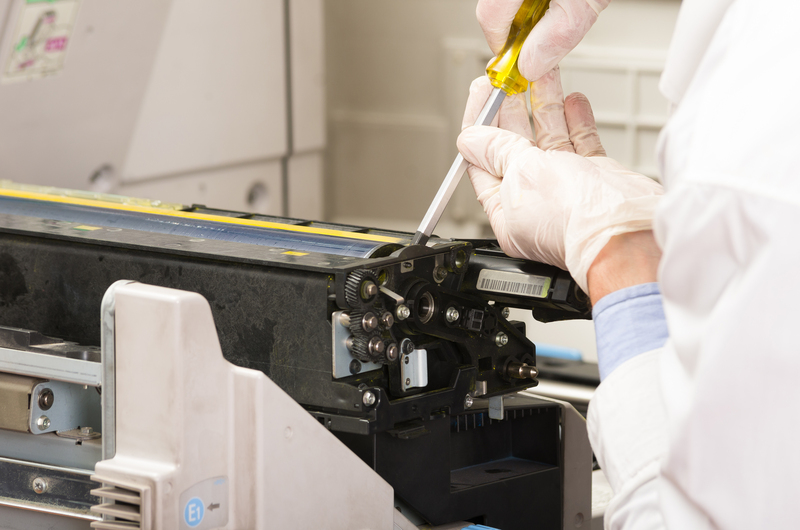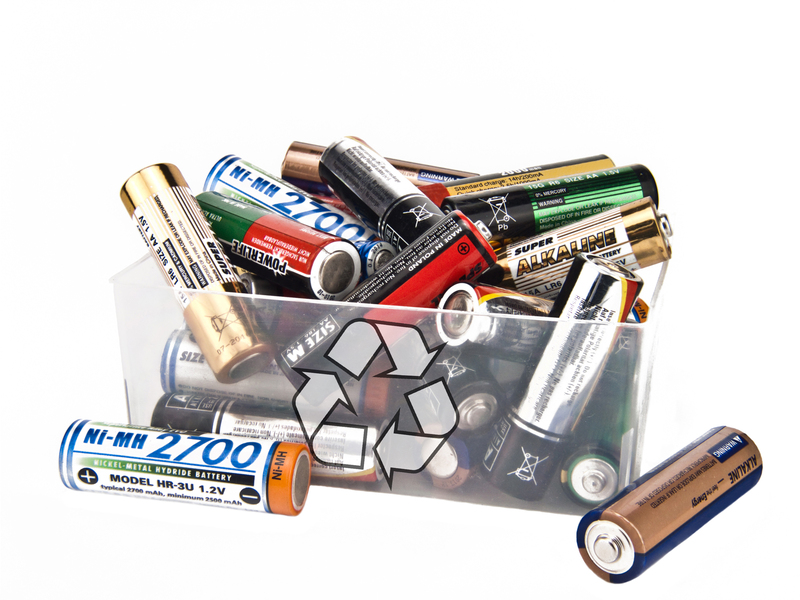Tactics for Lowering Your Plastic Waste: A Comprehensive Guide
Lowering your plastic waste is an essential step every individual and household can take in the fight against global pollution. Plastic debris is choking our oceans, crowding landfills, and threatening wildlife. Luckily, adopting a few practical and consistent tactics can significantly reduce your plastic footprint. This informative guide explores actionable strategies for lowering your plastic waste, helping you to live a greener, more sustainable lifestyle.

Why Reducing Plastic Waste is Important
Plastic waste has become a global environmental crisis. Single-use plastics--like bags, straws, cups, and packaging--are designed for convenience, but their long-lasting impact is devastating. Here's why minimizing plastic waste should be on everyone's agenda:
- Plastic lasts for centuries: Most plastics take hundreds of years to decompose, leaching chemicals into the environment as they break down.
- Threat to wildlife: Animals often mistake plastic for food, which can lead to injury or death.
- Microplastics: Tiny plastic particles are increasingly found in our food, water, and even the air we breathe, with unknown health effects.
- Resource depletion: Plastics are made from petroleum, a finite resource that contributes to pollution and climate change.
By taking steps to cut down on plastic use, you protect the planet and contribute to the health of future generations.
Foundational Tactics for Lowering Your Plastic Waste
The journey to reducing your plastic consumption starts with simple, everyday decisions. These foundational tactics form the core of any plastic waste reduction strategy:
1. Refuse Single-Use Plastics
One of the easiest and most powerful tactics for lowering your reliance on plastics is to refuse single-use items--things like straws, plastic bags, cutlery, and coffee cups. Here's how you can implement this:
- Say "no" to straws: Unless you need one, skip the straw or opt for a reusable or compostable alternative.
- Opt out of plastic cutlery and cups: Bring your own when ordering takeout or coffee.
- Avoid pre-packaged produce: Choose loose fruits and vegetables rather than those wrapped in plastic.
2. Replace Disposables with Reusables
Switching to reusables is perhaps the most effective method for cutting down on plastic waste. Consider these simple swaps:
- Reusable shopping bags: Keep a few sturdy bags in your car or backpack to avoid plastic bags at the store.
- Water bottles and coffee cups: Invest in a durable stainless steel or glass bottle, and bring your own cup for takeout coffee.
- Food storage containers: Use glass or stainless steel containers instead of disposable plastic wrap or sandwich bags.
- Reusable straws and cutlery: Keep a set in your bag or at work.
3. Buy in Bulk
Many household plastics come from excessive packaging. Buying in bulk reduces plastic waste by cutting packaging and often saves money. Find stores that offer bulk bins for grains, nuts, and spices, and bring your own reusable bags or containers to fill up.
4. Choose Plastic-Free Packaging
As demand for eco-friendlier options grows, more stores offer products with minimal or compostable packaging. Look for:
- Bar soap instead of liquid soap in bottles
- Dairy products in glass, cardboard, or metal
- Loose produce and bakery items
- Eggs in cardboard cartons instead of plastic
Advanced Strategies for Minimizing Your Plastic Footprint
Once you've mastered the basics of lowering your plastic waste, take your impact to the next level with these specialized approaches:
5. Support Zero-Waste Stores
Zero-waste or refill stores are popping up in many cities, offering groceries, personal care, and cleaning products without disposable packaging. Bring your own containers and shop for items like soap, shampoo, grains, and coffee completely package-free.
6. DIY Household Products
Cleaning agents, body scrubs, and even toothpaste can be made at home using simple ingredients like baking soda, vinegar, and essential oils. This reduces the need for buying products in plastic bottles and lets you control what goes into your home and body.
7. Choose Sustainable Brands
When buying new products, support businesses committed to reducing plastic waste. Look for:
- Recycled or minimal packaging
- Refillable products
- Plastic-neutral or plastic-free certifications
Your spending choices signal demand for less waste and encourage more companies to follow suit.
8. Recycle Thoughtfully
Not all plastics are recyclable, and improper recycling creates waste and contamination. Always check local recycling rules, clean your recyclables, and avoid "wishcycling"--putting non-recyclable items in the recycling bin.
Remember: Recycling should be your last resort after reducing, refusing, and reusing.
Everyday Actions to Reduce Plastic Use
Incorporate these daily habits to continually cut down your plastic usage:
- Carry a reusable water bottle and shopping bag wherever you go.
- Choose glass or metal over plastic when possible for food and drink.
- Buy secondhand--clothing, toys, and home goods are often packaged in plastic when new, but not when reused.
- Compost food scraps to avoid plastic trash bags in the landfill.
- Use a safety razor with replaceable blades instead of disposable razors.
- Opt for loose leaf tea instead of plastic-wrapped tea bags.
Plastic Waste Reduction in the Workplace
Lowering your plastic impact isn't just for home. Encourage your workplace to join the plastic-free movement by:
- Banning single-use utensils and cups in the office kitchen
- Providing filtered tap water and encouraging staff to use reusable bottles
- Opting for catering that avoids excessive plastic packaging
- Educating coworkers on the importance of reducing plastic waste
Celebrating Milestones and Sharing Progress
Progress in reducing plastic waste is a journey, not a destination. Share your successes, no matter how small, with friends, family, or on social media. Celebrating milestones keeps you motivated and inspires others to act.
How to Involve Others in Plastic Waste Reduction
Start at Home
Educate family members about the consequences of plastic pollution. Make it fun! Challenge each other to see who can go the longest without buying plastic-wrapped goods, or host a family DIY night for making cleaning products.
Influence Your Community
Encourage local businesses, schools, or neighborhood groups to adopt sustainable practices. Ideas include:
- Organizing plastic-free events
- Starting a neighborhood recycling or composting program
- Collaborating for bulk purchases to reduce packaging in your area
Advocacy can multiply your impact!
Common Pitfalls to Avoid in Reducing Plastic Waste
- Perfectionism: Reducing plastic is about progress, not perfection. Every small step counts.
- Overlooking hidden plastics: Many items, from clothing (synthetic fibers) to chewing gum, contain plastics. Read labels carefully.
- Falling for greenwashing: Watch out for "eco-friendly" claims that are misleading. Look for credible certifications or company transparency about materials and packaging.
The Bigger Picture: Policy and Systemic Change
Individual actions matter, but long-term solutions require policy and business shifts. Here's how you can support broader change:
- Vote for sustainable policies and leaders.
- Sign petitions or join campaigns for bans on single-use plastics.
- Support businesses that invest in innovative alternatives to plastic packaging.
- Contact manufacturers and retailers to request plastic-free options.

Plastic Waste Reduction FAQ
Q: What are the easiest swaps for beginners?
Start with reusable shopping bags, water bottles, and coffee cups. Avoid single-use straws and switch to bar soap. These swaps are simple, affordable, and make a big difference.
Q: Can I recycle soft plastics?
Most curbside recycling programs don't accept soft plastics like bags and wrappers. However, some supermarkets and dedicated drop-off points do collect them for recycling.
Q: Is compostable plastic a solution?
Compostable plastics break down faster under the right conditions, but most require industrial composting, not home bins. It's best to reduce plastic use overall rather than substitute with compostable options.
Conclusion: Your Path to Lowering Plastic Waste
Lowering your plastic waste isn't just about changing bags or bottles--it's a mindset shift that shapes every purchasing and lifestyle decision. By refusing, reducing, reusing, recycling, and rallying your community, you're actively building a cleaner, safer world.
Start with just one strategy today, and watch your impact multiply over time. Small changes, when multiplied by millions of people, can create a wave of positive change for our environment.
Tiny habits, big difference--begin your journey to lowering your plastic waste now!